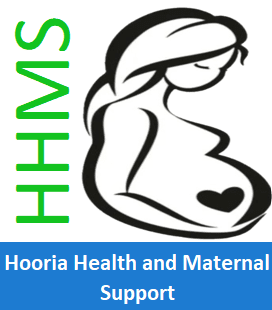Our Approach: Building Trust Through Cultural Understanding

Posted on October 20th, 2025
The first step was trust. A bilingual Hooria postpartum doula who shared Amina’s language and cultural background visited her home within days. Communication became easier, and Amina began to open up about her challenges, physical discomfort, emotional exhaustion, and worries about feeding her baby.
Our doula’s approach combined three essential elements:
1. Culturally Responsive Care The doula honored Amina’s postpartum traditions, including specific dietary preferences and rest customs, ensuring she felt safe and respected in her recovery environment.
2. Education and Empowerment Together, they reviewed postpartum warning signs, breastfeeding basics, and baby care routines. Amina was introduced to gentle exercises and nutritional tips aligned with her culture.
3. Community Connection The Hooria team linked Amina to local maternal support programs, transportation assistance for follow-up appointments, and a women’s circle where she met other mothers who spoke her language.
Challenges and Solutions
Challenge 1: Emotional Isolation Amina missed her family and felt disconnected in her new surroundings. Solution: Her doula provided consistent weekly visits and encouraged journaling, video calls with relatives abroad, and gentle outdoor walks for mental wellness.
Challenge 2: Nutrition and Recovery She struggled to find familiar foods that supported postpartum healing. Solution: The Hooria team connected her to a community grocery network that carried her cultural staples, restoring comfort and nutrition.
Challenge 3: Navigating Healthcare Without transportation or English fluency, medical appointments felt impossible. Solution: Hooria arranged rides to her doctor’s visits and provided interpretation support, ensuring continuity of care.
Results: A Journey Toward Confidence and Connection
Over three months, Amina transformed from feeling anxious and alone to confident and joyful in motherhood.
• Her physical recovery improved with proper rest, nutrition, and education.
• She began attending local parenting groups and made lasting friendships.
• Most importantly, she regained a sense of belonging and control over her well-being.
When asked what meant the most, Amina said,
“They treated me like family. I was not alone anymore.”
What This Case Taught Us
Every family’s postpartum journey is unique, but Amina’s story highlights the vital importance of culturally responsive care. For refugee mothers, postpartum healing isn’t just physical, it’s emotional, cultural, and communal. When care honors these layers, mothers recover with strength and dignity.
At Hooria Health and Maternal Support, we continue to use stories like Amina’s to shape our training, expand partnerships, and advocate for more equitable maternal health access.
Final Thoughts: Let’s Continue the Conversation
No mother should have to navigate postpartum recovery in isolation, especially in a new country.
If you or someone you know is seeking culturally responsive postpartum care, reach out to Hooria Health and Maternal Support. Our compassionate doulas and maternal health team are here to listen, guide, and walk with you through every stage of recovery.
Contact Hooria Health and Maternal Support today to start a conversation about personalized postpartum support.
Contact Us
Reach Out Today
Explore our caring maternal health solutions designed for you. Connect with our team today and begin a journey towards empowerment and support for you and your family.
